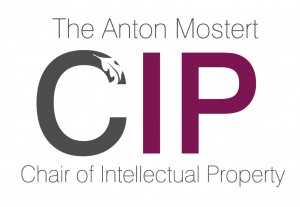
In recent news, the TAC (Treatment Action Campaign) has called on government to revise the Patents Act to reduce the patent protection available to pharmaceutical inventions, which the organisation believes is responsible for the high cost of medicines and a delay in the availability of generic medicines.
The organisation refers to the Doha Declaration, which has been signed by South Africa as a member of the World Trade Organisation, to support its call.
“Government has not yet been proactive in utilising these mechanisms”
There is no denying that the impact of diseases such as HIV/AIDS, tuberculosis and malaria on developing countries, including South Africa has been devastating. However, amendment of the Patents Act is not necessarily the best or more efficient way forward to deal with this health crisis. In fact, there are already mechanisms in place in both the Patents Act and the Medicines and Related Substances Control Act which address the very concerns raised in the Doha Declaration and provide mechanisms for government to step in and ensure affordable medicines. The problem is that government has not yet been proactive in utilising these mechanisms.
The Doha Declaration, which was signed in 2001, provides that member countries are not prevented by membership of the TRIPS Agreement from taking measures to protect public health and that the TRIPS Agreement can be interpreted to protect public health and to promote access to medicines for all. Certain mechanisms for doing so are set out in the Doha Declaration including: the right of member countries to grant compulsory licences and the freedom to determine the grounds upon which such licences are granted; and the right to determine what constitutes a national emergency in order for the government to exercise its “walk-in” rights and an affirmation that HIV/AIDS, tuberculosis, malaria and other epidemics, can represent a national emergency.
The South African Patents Act has a number of sections which may be used by government (or other parties) to give effect to the measures described in the Doha Declaration in relation to the public health issues and access to medicines.
Section 4 of the Patents Act sets out that a Minister of State can use an invention for public purposes on agreed upon conditions, or if there is no agreement, on conditions as are determined by the Commissioner of Patents on application by the Minister and after hearing the patentee. There are no grounds stipulated here, merely that the invention must be used for public purposes. However, this section has not to date been utilised by the State.
Section 78 of the Patents Act sets out that a Minister may on behalf of the State, acquire any invention or patent on agreed upon terms and conditions. No grounds are stipulated, only that conditions must be agreed upon between the parties. Again, the State has to date not pursued such an acquisition of a patent or invention.
Section 56 of the Patents Act sets out the grounds for an applicant to be able to apply for a compulsory licence from the Commissioner of Patents in regard to a patented invention where there has been an abuse of rights by the patentee. This section in particular, pertains to the compulsory licence provisions provided for in the Doha Declaration.
“a lack of access to affordable medicine would meet the requirements for such a compulsory license application”
Of particular relevance to the issue of access to affordable medicines are subsections (1)(c) and (e). In specific, subsection (c) provides that a compulsory licence can be applied for in a case where the demand for the patented article in South Africa is not being met to an adequate extent and on reasonable terms. Our courts have indicated that “adequate extent” means sufficient for the needs of South Africa and that a lack of “reasonable terms” may be evidenced by public dissatisfaction with the prices. Although the decisions are made by the Commissioner of Patents on a case-by-case basis to award a compulsory licence, it seems that a lack of access to affordable medicine would meet the requirements for such a compulsory license application.
Although more limited in application, subsection (e) provides that an applicant for a compulsory licence may do so on the ground that the price of the patented article is excessive compared to country of manufacture where the demand for the patented article in South Africa is being met by importation but where the price charged in South Africa is excessive in comparison to countries where the patented article is manufactured and there is no good reason for the substantially higher price.
Despite these provisions, very few applications for compulsory licences have been brought to the Commissioner of Patents.
Furthermore, the Medicines and Related Substances Control Act in section 15C sets out measures which can be applied by the Minister of Health to ensure supply of more affordable medicines. Firstly, the Minister can, despite the provisions of the Patents Act, prescribe that certain rights of an owner of a medicine registered in South Africa are limited and do not extend to acts in respect of the medicine. In other words, acts of infringement by a third party when pertaining to provision of access to affordable medicines can be allowed by the Minister of Health in terms of this section.
Secondly, in a more limited provision, the Act also sets out that the Minister can prescribe conditions on which a generic medicine can be imported by a person who is not the holder of the registration certificate for a registered medicine. However, the medicine must have originated from the site of manufacture of the original manufacturer.
The reality is that amendment of legislation tends to be a lengthy process and depending on the quality of the drafting can often have unintended or unforeseen consequences. As indicated, there are a number of existing mechanisms that can already be used and I believe that government should be lobbied to be more proactive in putting these mechanisms to use to provide more affordable access to medicines, which would in turn be in keeping with our undertaking as a signatory to the Doha Declaration.
Dr Joanne van Harmelen
Spoor & Fisher




 Follow
Follow

